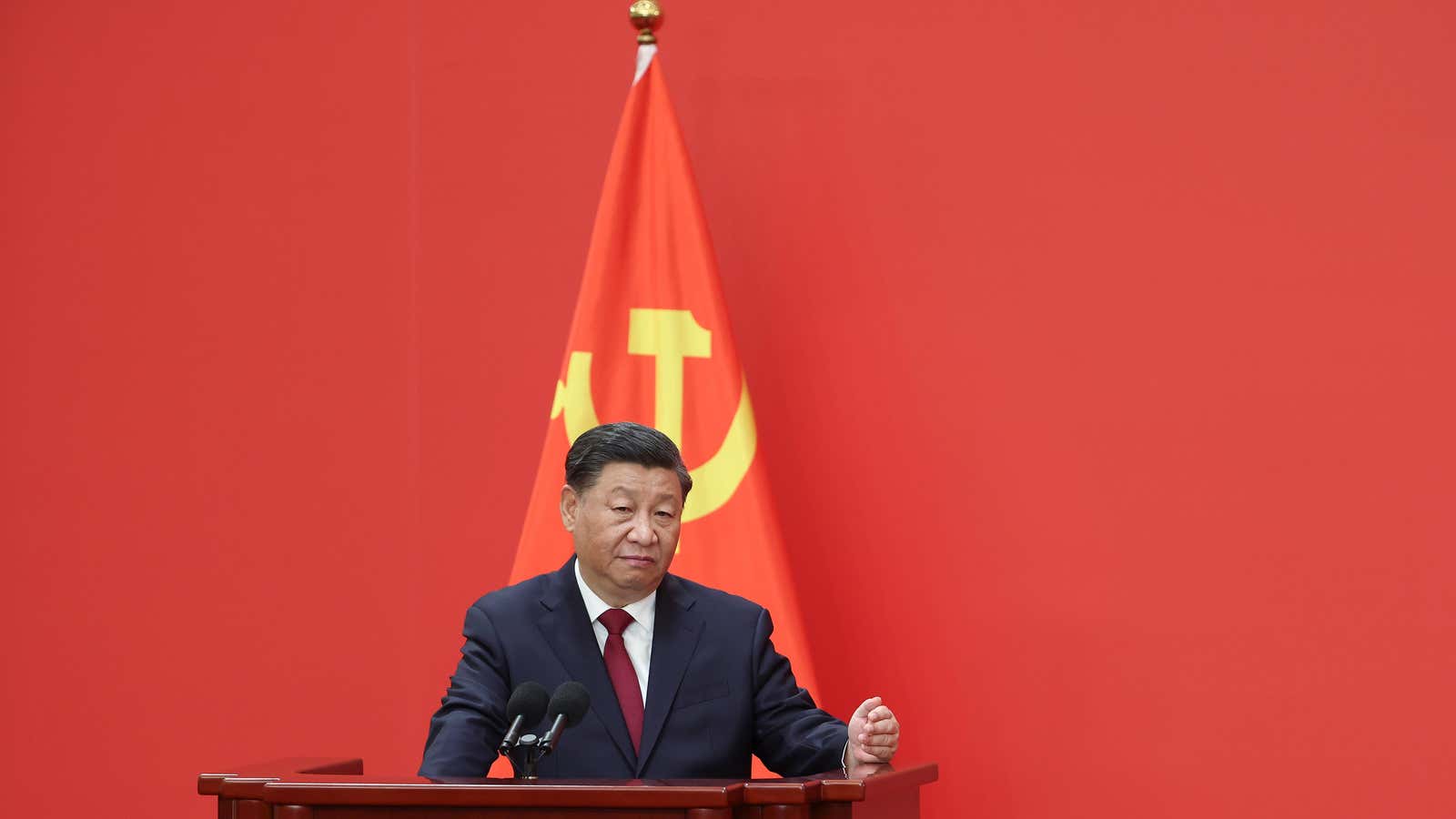Even Tiger Global is nervous about where China is headed.
A long-time investor in the market, the American investment firm has decided to temporarily halt investing in Chinese equities.
It’s already been pulling back in a market it has spent roughly two decades building a robust portfolio in. Tiger Global’s portfolio in China has shrunk from the mid-teens to mid-single digits, Bloomberg reported, citing people familiar with the matter.
Even before Xi Jinping won his third term as the leader, the perception of China’s economic resilience was teetering. In early October, Hong Kong’s Hang Seng Index already fell to 11-year-lows not seen since the aftermath of the global financial crash and during the eurozone debt crisis. Xi’s third term win on Oct. 22 battered the stock market further.
For Tiger Global, that’s already had a tough year, that’s not good news.
Tiger Global, by the digits
$5 billion: net profit Tiger Global has earned on its 2009 $200 million investment in JD.Com—China’s largest retailer. Other big bets include Alibaba and Didi Chuxing
$8.6 billion: American depository receipts (ADRs) of Chinese firms held by Tiger Global on Mar. 31
36: Tiger Global’s investments in closely held companies based in China or Hong Kong, according to PitchBook data. Some big ones are short-form video app TikTok and fast-fashion retailer Shein
52%: Tiger Global’s hedge fund losses for the year because of Wall Street’s tech stocks selloffs, among other things
Charted: Chinese stocks hit by Xi’s reelection
Over $93 billion market value was erased when the Nasdaq Golden Dragon China Index of 65 Chinese stocks posted its biggest drop on record, sinking 14%, on the Monday after Xi’s win. More than half of this wipeout came from the five biggest US-listed Chinese companies alone.
China’s political perils
Even bullish players like Tiger Global worry that President Xi Jinping’s reelection and the growing stronghold of the Chinese Communist Party will have stifling implications on doing business in the region:
🌎 Jinping’s relations with the West are already strained, and geopolitical tensions will likely increase
😷 China’s zero-Covid policy will likely continue, complete with sporadic and stringent lockdowns
👮♂️ Regulatory crackdowns on internet and for-profit education businesses have already inflicted heavy losses on many funds
🏠 Warnings of a prolonged property crisis abound
⚔️ The invasion of Taiwan looks imminent—it’s a promise that helped Xi win a third term. The CCP’s revised charter vows to “firmly oppose and contain Taiwanese independence.”
Trend: Tencent stepped back, too
Behemoth Chinese investment Tencent also decided to divest about $14.5 billion of its $88 billion portfolio in the country, according to a September Financial Times report. While Tencent denies facing any external pressure or setting divestment targets, any changes in its activity is likely to have a knock-on effect on China’s tech sector. Tiger Global has certainly followed in its footsteps.
If not China, then where will Tiger Global invest?
Overall, the investing giant is planning to write fewer cheques for some time. And when it does, it’ll focus on opportunities away from China, largely in early-stage startups across India and Southeast Asia. It also has a renewed interest in Africa—especially in the region’s booming fintech scene.
Related stories
🇨🇳 How Beijing’s global ambitions are playing out in politics, economics, and technology
